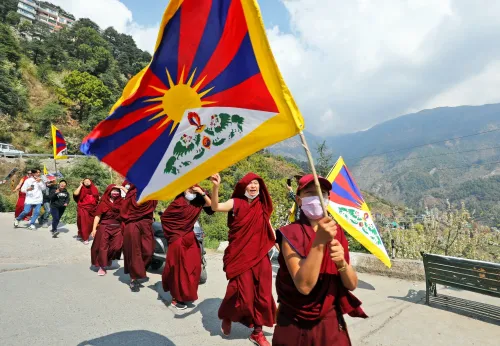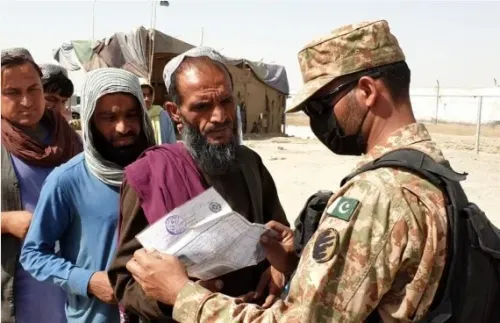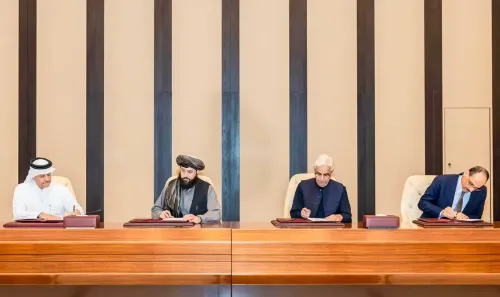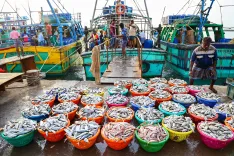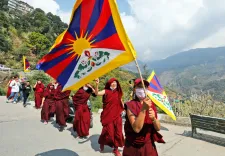What Are Human Rights Defenders Saying About the State of Disaster Relief in Pakistan-Occupied Gilgit-Baltistan?
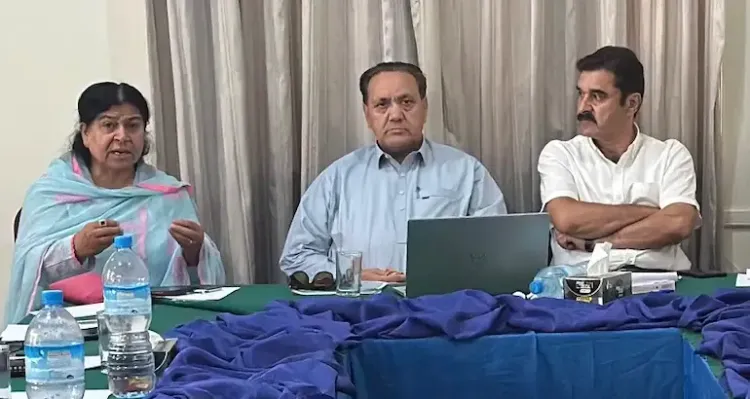
Synopsis
Key Takeaways
- Human rights defenders are alarmed over the disaster relief situation in PoGB.
- Marginalized communities are facing severe hardships due to natural disasters.
- There is a pressing need for transparency and accountability in relief efforts.
- The government is urged to take decisive and inclusive actions.
- Vulnerable groups require focused support and protection.
Islamabad, Sep 13 (NationPress) Numerous human rights advocates and community representatives have expressed serious worries regarding the poor state of disaster relief in Pakistan-occupied Gilgit Baltistan (PoGB). They pointed out that recent floods, landslides, and glacial lake outbursts have significantly impacted marginalized communities, leaving them to face the brunt of this crisis.
During an outreach session organized by the Human Rights Commission of Pakistan (HRCP) in PoGB on Friday, participants underscored that displaced families are compelled to reside in hazardous shelters devoid of clean water, electricity, healthcare, or educational resources.
They emphasized the neglect of vulnerable groups, including women, children, daily-wage laborers, persons with disabilities, and transgender individuals, while mental health issues were largely overlooked. The meeting further raised concerns regarding the lack of transparency and accountability surrounding relief funds.
As per the HRCP, stakeholders unanimously agreed on a resolution during the meeting which asserted that disaster response in PoGB must prioritize inclusivity, transparency, and dignity. This encompasses multi-sectoral coordination at all levels, community-led monitoring and rehabilitation, and clear oversight of relief funds. They also advocated for the protection of vulnerable households, fair compensation, and relocation from high-risk areas. Additionally, suggestions were made to integrate climate justice strategies, such as reforestation, cessation of exploitative natural resource extraction, climate insurance, and disaster preparedness into the school curriculum.
Earlier this week, expressing alarm over the catastrophic floods that ravaged Pakistan, the HRCP declared that these calamities are no longer merely ‘natural’; they are “manmade, exacerbated by poor planning, land grabs, deforestation, corrupt practices, and climate inaction.” The rights organization asserted that both the state and successive Pakistani governments must bear responsibility for the ongoing crisis in the nation.
“While rescue and relief efforts are currently in progress, the HRCP emphasizes that these operations must be swiftly expanded, with additional rescue teams deployed and more relief camps established, ensuring equitable access to food, shelter, clean drinking water, and medical services. Special focus must be directed towards the most vulnerable, including women, children, the elderly, and individuals with disabilities,” stated the rights body.
The HRCP urged both the federal and provincial governments of Pakistan to awaken to their constitutional responsibilities, display political will and foresight, and undertake decisive and inclusive measures to prevent the country from being ensnared in recurring cycles of displacement and disaster.

